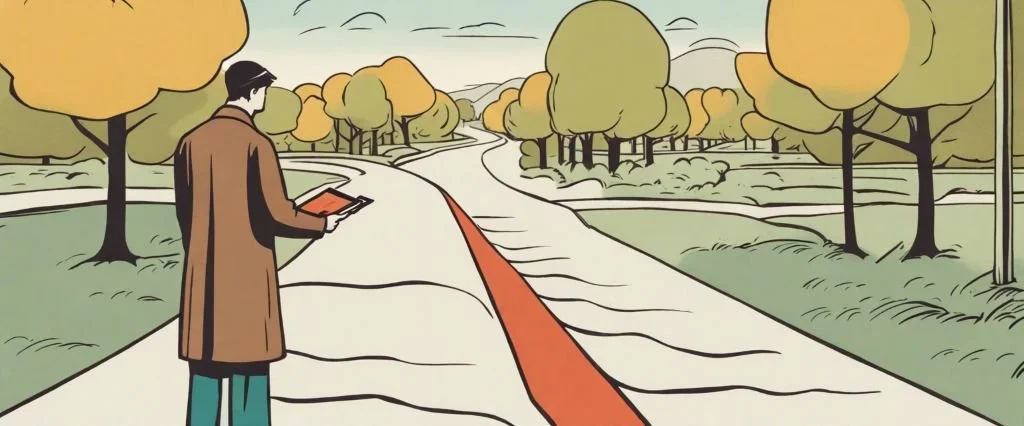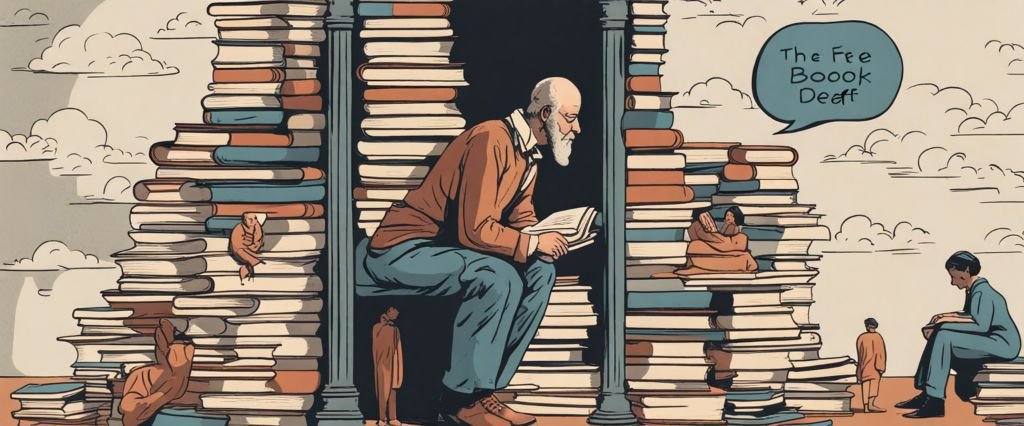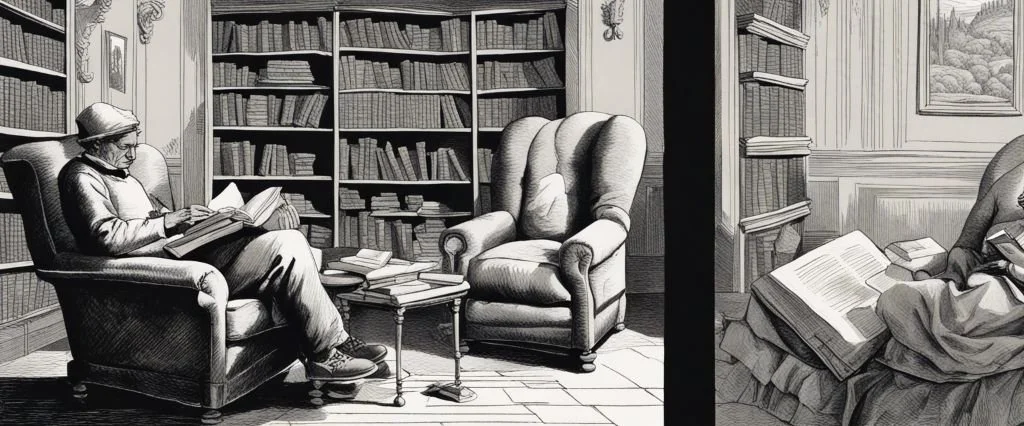Embracing Defeat: A Compelling Account of Japan's Postwar Reconstruction
Chapter 1 What's The Free Book Embracing Defeat by John W. Dower
"Embracing Defeat: Japan in the Wake of World War II" is a non-fiction book written by John W. Dower. Published in 1999, it explores the aftermath of Japan's surrender in World War II and the subsequent occupation of the country by the United States. The book delves into various aspects of post-war Japan, including the social, cultural, political, and economic changes that took place during the occupation period. It analyzes the challenges faced by the Japanese people and the ways in which they reconstructed their society and identity amidst the ruins of defeat. "Embracing Defeat" won the Pulitzer Prize for General Nonfiction in 2000 and is considered an influential work on the history of post-war Japan.
Chapter 2 Is The Free Book Embracing Defeat A Good Book
Yes, "Embracing Defeat: Japan in the Wake of World War II" by John W. Dower is widely regarded as an excellent book. It provides a detailed and comprehensive account of Japan's post-World War II reconstruction, cultural shifts, and the challenges faced by the country during that time. Dower's research and writing style make the book highly informative and engaging for readers interested in history, particularly the period following Japan's defeat in the war.
Chapter 3 The Free Book Embracing Defeat by John W. Dower Summary
"Embracing Defeat: Japan in the Wake of World War II" is a Pulitzer Prize-winning book written by John W. Dower. It provides an in-depth analysis of the social, political, and cultural changes that occurred in Japan in the aftermath of World War II.
The book begins by examining the immediate aftermath of Japan's surrender in 1945. It explores the devastation caused by the war, focusing on the physical destruction of cities, the economic collapse, and the moral and psychological impact on the Japanese people. Dower highlights the power vacuum left by the fall of the militaristic regime and the subsequent challenges faced by Allied forces in occupying and rebuilding the nation.
Dower explores various aspects of Japanese society during this period. He delves into the experiences of individuals ranging from Emperor Hirohito to ordinary citizens trying to rebuild their lives. Dower also analyzes the complex relationship between the occupiers and the occupied, discussing the tensions, clashes, and collaborations between the American-led forces and the Japanese people.
One of the key themes of the book is the transformation of Japanese society from a militaristic nation to a democratic one. Dower explores the efforts made by the allies to implement democratic reforms and rebuild Japanese civil society. He also investigates the experiences of those involved in war crimes, exploring the culpability, punishment, and subsequent rehabilitation of individuals.
The cultural impact of the occupation is another significant aspect of Dower's analysis. He examines the introduction of Western cultural influences, the reformation of education, and the shift in Japanese perception and self-image. Dower explores how the occupation influenced various art forms, literature, and cinema, reflecting the complexities of Japanese identity in the aftermath of war.
Overall, "Embracing Defeat" paints a comprehensive and nuanced portrait of post-war Japan. It examines the country's journey from defeat and devastation to recovery and transformation, shedding light on the challenges faced by both victors and vanquished in the pursuit of a new future.
Chapter 4 The Free Book Embracing Defeat Author
John W. Dower is an American historian and author. He was born on June 21, 1938, in Providence, Rhode Island. Dower is a professor emeritus of history at the Massachusetts Institute of Technology (MIT), specializing in Japanese history and U.S.-Japan relations.
Dower released his book "Embracing Defeat: Japan in the Wake of World War II" in 1999. The book primarily focuses on the immediate post-World War II period in Japan, covering topics such as the occupation, reconstruction, societal changes, and the impact of American culture. "Embracing Defeat" received widespread critical acclaim and won numerous awards, including the Pulitzer Prize for General Nonfiction in 2000.
Apart from "Embracing Defeat," John W. Dower has written several other notable books, including:
1. "War without Mercy: Race and Power in the Pacific War" (1986) - Explores the racial dynamics and propaganda during the Pacific War, particularly focusing on the portrayal of Asians and the dehumanization of the enemy.
2. "Cultures of War: Pearl Harbor/Hiroshima/9-11/Iraq" (2010) - Examines the cultural and historical contexts of four major acts of war in America's twentieth-century history.
3. "Ways of Forgetting, Ways of Remembering: Japan in the Modern World" (2012) - Explores the construction of historical memory in Japan, particularly regarding Japan's war crimes, apologies, and reconciliations.
While "Embracing Defeat" is considered John W. Dower's most well-known and acclaimed work, all of his books have received praise for their meticulous research, compelling narratives, and insightful analysis. However, the popularity of editions may vary depending on individual preference and availability.
Chapter 5 The Free Book Embracing Defeat Meaning & Theme
The Free Book Embracing Defeat Meaning
Embracing Defeat by John W. Dower is an exploration of post-World War II Japan and its transformation from a defeated nation to a prosperous democracy. The book delves into the complexities of Japan's occupation and reconstruction period, examining not only the political and economic changes, but also the social and cultural shifts.
One of the key themes of the book is how the Japanese people reacted to the defeat and occupation, and how they managed to rebuild their society from scratch. Dower highlights the resilience and adaptability of the Japanese people, who were able to cope with the traumas of war and surrender and work towards a better future. He also emphasizes the role played by various factions, including the Japanese government, the Allied occupying forces, and the Japanese people themselves, in shaping the post-war landscape.
Another important aspect of Embracing Defeat is the exploration of cultural and societal changes during this period. Dower examines how Japan's traditional institutions and values were challenged and transformed, as well as the introduction and influence of American ideals and practices. He also looks at the impact of war crimes trials, the role of intellectuals and artists in rebuilding Japanese society, and the role of women in the post-war era.
Overall, the meaning of Embracing Defeat is to shed light on the complexities of post-World War II Japan and the challenges it faced in rebuilding its nation. Dower aims to provide a comprehensive understanding of this transformative period in Japanese history and to present a nuanced analysis of the social, cultural, and political changes that took place. The book serves as a reminder of the resilience of the human spirit in the face of adversity and the possibilities for rebuilding and renewal.
The Free Book Embracing Defeat Theme
The main theme of the book "Embracing Defeat" by John W. Dower is the complex and multifaceted experience of Japan after its surrender in World War II. Dower explores several interconnected themes within this broader context:
1. Cultural and National Identity: The book delves into the ways in which Japan's cultural and national identity underwent a profound transformation following its defeat. Dower explores how Japan, once an imperial power, had to come to terms with its militaristic past and redefine its national identity.
2. Occupation and Reconstruction: Dower examines the challenges and successes of the Allied Occupation of Japan. He explores the efforts of the American occupation forces to dismantle the militaristic infrastructure, reshape the political and economic systems, and promote democratic values and institutions.
3. Reconciliation and Memory: The book discusses how Japan's defeat and occupation prompted a complex process of reconciliation with its past and its Asian neighbors. Dower analyzes how the Japanese people grappled with the atrocities committed in their name and how they confronted the painful memory of war.
4. Postwar Economic Miracle: Dower explores Japan's astonishing postwar economic recovery, which transformed it into one of the world's leading industrial powers. He examines the socio-economic factors, policies, and individuals that contributed to this "economic miracle."
5. Shifts in Gender Roles and Society: Dower also examines the transformation of gender roles and societal norms during the postwar period. He discusses how women gained new opportunities and social status, and how traditional notions of masculinity and femininity underwent significant changes.
Throughout the book, Dower highlights the resilience, adaptability, and capacity for change exhibited by the Japanese people in the aftermath of defeat. He captures the complexity and nuance of Japan's postwar experience, demonstrating how it shaped the nation's trajectory and its place in the world.
Chapter 6 Other Accessible Resources
1. Physical Bookstores: The Free Book Embracing Defeat can be found in major physical bookstores like Barnes & Noble or Books-A-Million.
2. Online Bookstores: Websites like Amazon, Books-A-Million, or Barnes & Noble allow you to purchase the book in print or e-book format.
3. Google Books: You can find previews or purchase the e-book version of the book on Google Books.
4. Project Gutenberg: This platform offers free access to public domain books, and you might be able to find older editions of Embracing Defeat.
5. Internet Archive: This website provides free access to a wide range of books, including Embracing Defeat. You can borrow, download, or read it online.
6. Library Websites: Many public and university libraries have their collections online, and you can search their catalogs to see if they have Embracing Defeat available for borrowing.
7. Goodreads: This social platform for book lovers allows users to rate and review books, including Embracing Defeat. You can find recommendations and discussions about the book here.
8. YouTube: Some channels might offer video summaries or discussions about the book, providing insights and alternative perspectives.
9. Podcasts: Many podcasts focus on history or literature, and there might be episodes that discuss Embracing Defeat and its themes.
10. Academic Databases: If you're looking for scholarly articles or reviews related to Embracing Defeat, platforms like JSTOR or Google Scholar can provide you with access to a wealth of information.
Chapter 7 Quotes of The Free Book Embracing Defeat
The Free Book Embracing Defeat quotes as follows:
1. "When one reflects on the psychology of the Japanese people, it is difficult to avoid the conclusion that their uniquely intense, often fanatical, attachment to the emperor and the unity of the nation was itself a kind of religion—a spiritual essence in a land where religious sentiments had been chronically strong."
2. "The March First Movement—marked by public speeches, slogans, marches, strikes, boycotts, and especially by the proclamation of a Korean government-in-exile—involved millions of people and ended in violent repression."
3. "With food shortages and rampant inflation, just about everyone ended up bartering. The worst victims of the black market economy were the poor, especially those who did not live near major cities where there was more ready access to goods. Overall, the collection of goods and cash was heavily skewed in favor of those in power."
4. "The term ‘macarism’ was used to describe the trauma of working under the Occupiers, often under conditions of semi-slavery. For poor Japanese, macarism went deeper than the fact of individuals they knew dying for reasons that were not clear."
5. "Even a superficial grasp of Japanese history suggests that periods of foreign relations stand forth as conspicuous disasters. This obvious lesson was absorbed deeply by the Meiji leaders and the resulting xenophobic attitude helped to shape the educational system, which emphasized martial arts and a highly constricted view of the outside world."
6. "For Japan's leaders, despite all recognitions of current events, the Yokusan and ‘racial-unity’ slogans remained of critical importance—not just as useful bromides but as compulsively repetitive formulas that helped frame day-to-day speech and action."
7. "In the minds of General Staff officers, the Soviet Union was the embodiment of evil, and its military power had to be confronted and crushed. Although Yoshijiro Umezu, who had experienced the ferocity of Soviet women partisans in Manchukuo, was not the only one in this camp, he seems to have been among those who clung most unyieldingly to the belief that the Soviet–German war was Japan's great window of opportunity to save the nation from ruin."
8. "In a nation that historically prided itself on its strong leaders, the sight of a bunch of hide-bound bureaucrats from some foreign nation laying down the law was nothing short of bewildering."
9. "Almost nothing illustrated better the powerlessness and sense of national humiliation felt by Japanese in the first year or so of occupation than the fact that the emperor felt forced to endure a Diet investigation into the exact nature of the physical relationship between himself and the goddess Amaterasu."
10. "For a nation that had stood together for years, and built empire upon empire out of its own blood, sweat, and tears, the photographs suggested nothing so much as disintegration and dispersion."
Chapter 8 Similar Books Like The Free Book Embracing Defeat
Title: A Diverse Collection of Captivating Reads
1. "Empire of Pain" by Patrick Radden Keefe: Explore the gripping tale of the Sackler family, the creators of OxyContin, and the devastating impact of their pharmaceutical empire. Keefe's investigative journalism will leave you spellbound as he delves into the dark underbelly of the opioid crisis in America.
2. "Genghis Khan and the Making of the Modern World" by Jack Weatherford: Embark on an enthralling journey through history as Weatherford explores the life and legacy of Genghis Khan. This captivating account not only traces the rise and fall of the Mongol Empire but also unveils the significant impact Khan had on shaping our modern world.
3. "Educated" by Tara Westover: Delve into the mesmerizing memoir of Tara Westover, who grew up in a strict and isolated survivalist family in rural Idaho. Witness her extraordinary journey as she escapes her oppressive upbringing and goes on to earn a Ph.D., demonstrating the transformative power of education.
4. "Norwegian Wood" by Haruki Murakami: Immerse yourself in Murakami's beautifully written coming-of-age novel set in 1960s Tokyo. Through the protagonist's introspective narrative, Murakami explores themes of love, loss, and the pursuit of personal identity, leaving readers with a lingering sense of melancholy and introspection.
5. "The Name of the Wind" by Patrick Rothfuss: Step into the captivating world of Kvothe, a gifted magician and musician, as he recounts his epic life story to a scribe. Rothfuss weaves together a mesmerizing tale filled with vibrant characters, intricate world-building, and lyrical prose, making this fantasy novel an absolute must-read.
These five books promise a diverse range of genres and topics that will captivate your imagination and offer profound insights. Each selection presents a unique and engaging perspective, taking you on a journey of discovery and contemplation. Happy reading!


